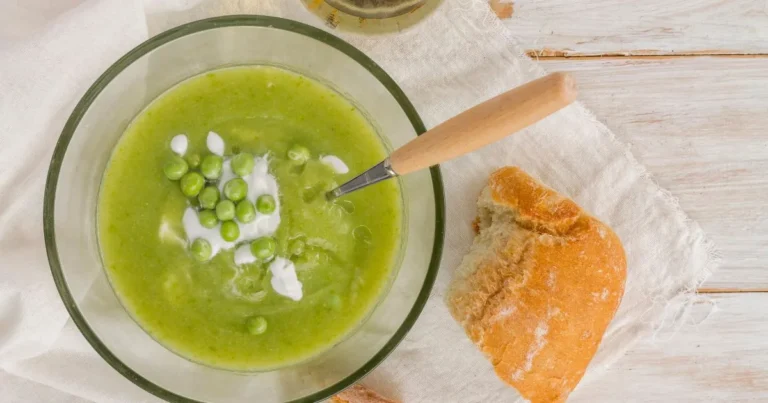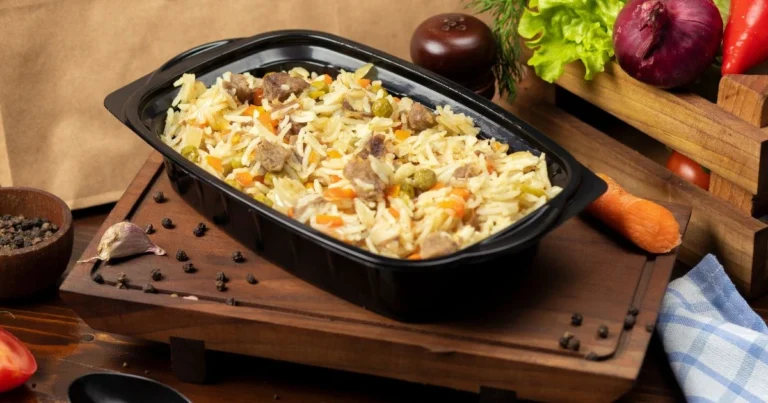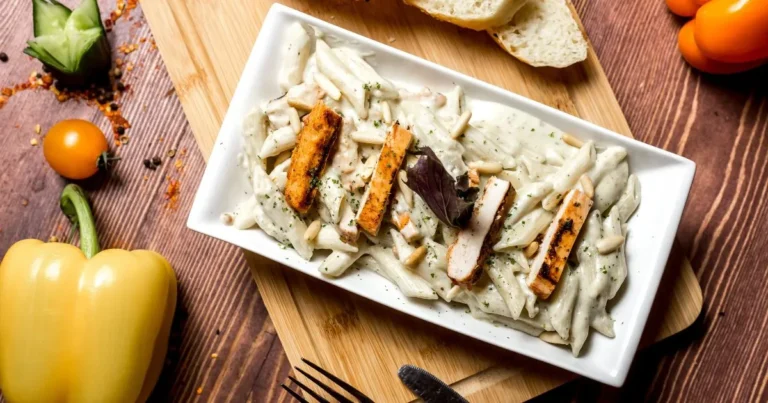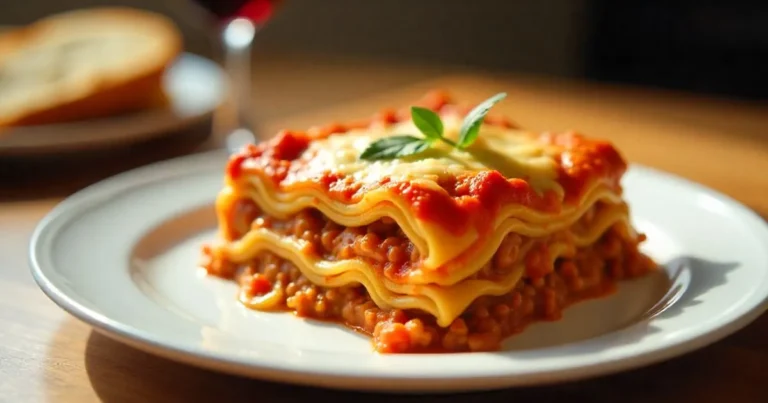Italian Seasoning Ingredients: Flavor, Health, and Everyday Benefits
Introduction: Bringing Italy Into Your Kitchen
Picture yourself cooking a simple meal—maybe roasted chicken, a bowl of pasta, or a tray of golden vegetables. With just a sprinkle of herbs, the flavors instantly transport you to a cozy Italian trattoria. That magical blend is what makes Italian seasoning so powerful. It’s more than a mix of dried herbs—it’s history, tradition, and health packed into a jar.
If you’ve ever wondered what goes into Italian seasoning, how each herb benefits your health, and how you can use it to elevate your dishes, you’re in the right place. By the end of this guide, you’ll know exactly what makes Italian seasoning special, how to make it yourself, and how to use it to bring authentic flavors into your home cooking.
What is Italian Seasoning?
Italian seasoning is a blend of Mediterranean herbs that brings together sweet, earthy, and savory notes. While recipes vary, the core mix usually includes:
- Basil
- Oregano
- Rosemary
- Thyme
- Marjoram
- Sage
This blend saves you from reaching for multiple jars when cooking. Whether you’re seasoning pizza, soups, meats, or vegetables, Italian seasoning simplifies the process while adding depth and balance.
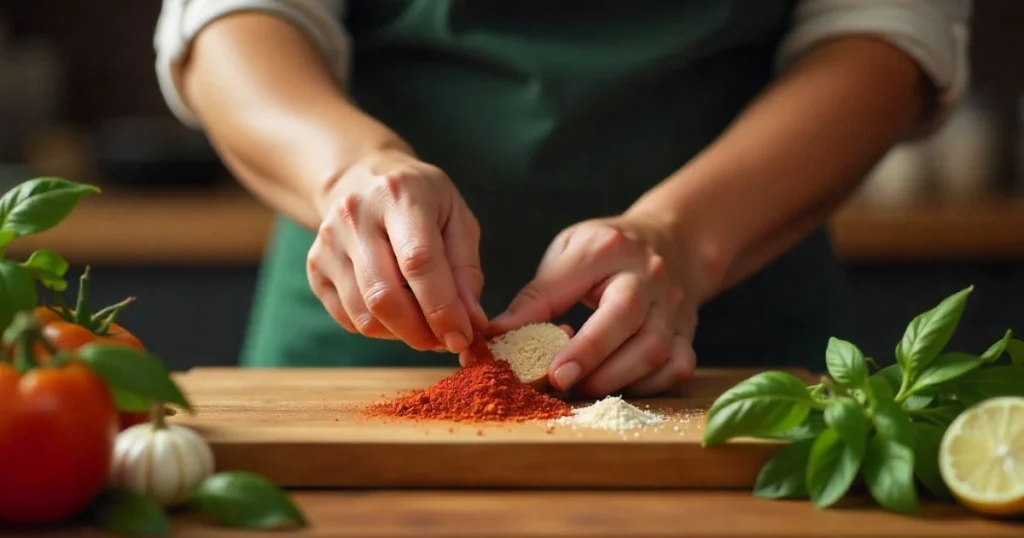
Core Italian Seasoning Ingredients and Their Benefits
Basil – The Sweet, Aromatic Base
Basil provides a sweet, slightly peppery taste that rounds out stronger herbs.
Health Benefits:
- Supports digestion and reduces bloating.
- Contains vitamin K, vital for bone health.
- Anti-inflammatory compounds that calm the body.
Best Uses:
- Tomato sauces
- Fresh salads
- Pasta dishes
Oregano – The Bold Antioxidant
Oregano is robust, earthy, and slightly bitter, making it the backbone of many Italian recipes.
Health Benefits:
- Rich in antioxidants that protect your cells.
- Antimicrobial properties that help fight bacteria.
- Supports immune health naturally.
Best Uses:
- Pizza sauce
- Grilled meats
- Salad dressings
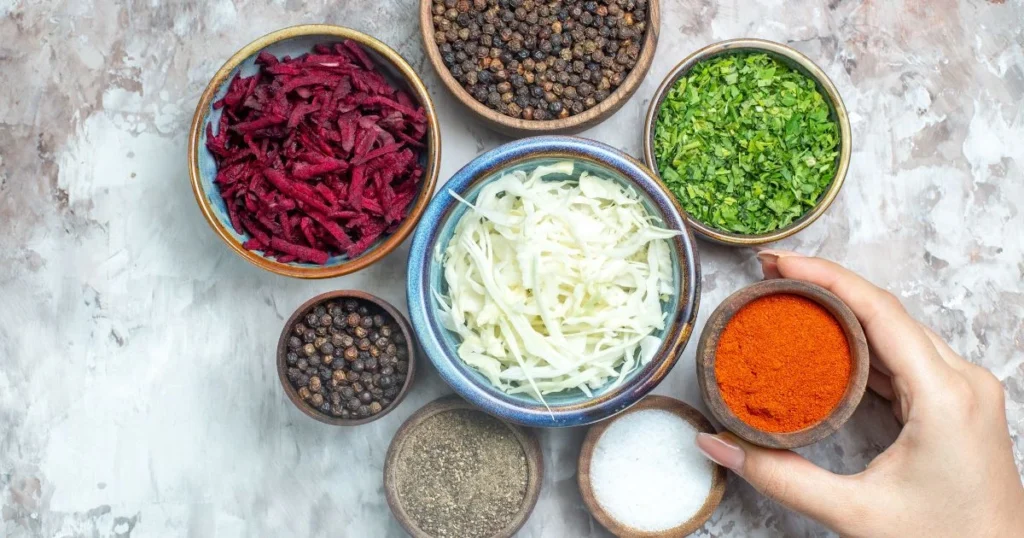
Rosemary – The Pine-Scented Energizer
Rosemary has a bold, woodsy aroma that instantly elevates roasted dishes.
Health Benefits:
- Improves circulation and memory.
- Contains compounds that support digestion.
- Natural anti-inflammatory herb.
Best Uses:
- Roasted chicken or lamb
- Potatoes and breads
- Infused oils
Thyme – The Subtle Immune Booster
Thyme offers an earthy, lemony flavor that blends seamlessly with other herbs.
Health Benefits:
- Rich in vitamin C, supporting your immune system.
- Antibacterial and antifungal properties.
- Helps ease coughs and respiratory issues.
Best Uses:
- Soups and stews
- Poultry dishes
- Marinades
Marjoram – The Gentle Balancer
Often confused with oregano, marjoram is sweeter and more delicate.
Health Benefits:
- Soothes digestion and reduces gas.
- Calming effect on the nervous system.
- Provides antioxidants that combat stress.
Best Uses:
- Vegetable soups
- Light sauces
- Salad dressings
Sage – The Ancient Healer
Sage has a savory, slightly peppery taste that gives warmth to many dishes.
Health Benefits:
- Supports memory and brain function.
- Loaded with antioxidants that protect against aging.
- Anti-inflammatory properties that ease joint discomfort.
Best Uses:
- Stuffing
- Poultry and beans
- Rich stews
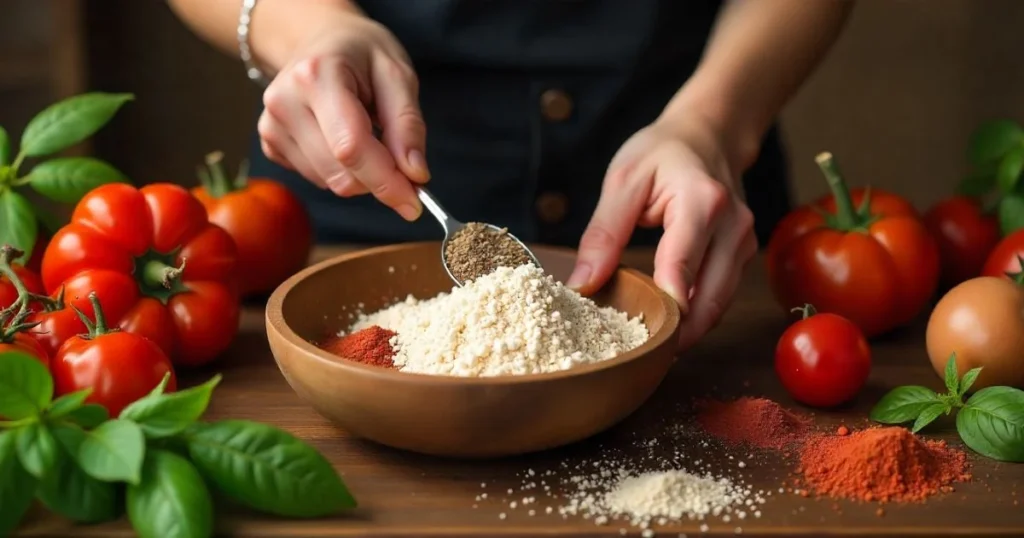
Additional Herbs in Italian Seasoning
Some blends also include:
- Parsley – Brightens dishes and adds vitamin C.
- Garlic Powder – Boosts immunity and heart health.
- Onion Powder – Adds depth and flavor with anti-inflammatory benefits.
- Red Pepper Flakes – Brings heat and boosts metabolism.
Health Benefits of Italian Seasoning Blend
When you combine these herbs, you create a powerhouse of flavor and nutrition.
- Rich in Antioxidants – Protects against free radical damage.
- Supports Digestion – Eases bloating and helps break down food.
- Boosts Immunity – Naturally antibacterial and antifungal.
- Anti-Inflammatory – Helps reduce inflammation throughout the body.
- Heart Health – Compounds in oregano, garlic, and rosemary support circulation.
How to Make Italian Seasoning at Home
Basic Italian Seasoning Recipe
| Ingredient | Quantity | Notes |
|---|---|---|
| Dried Basil | 2 tbsp | Sweet and aromatic |
| Dried Oregano | 2 tbsp | Earthy and bold |
| Dried Rosemary | 1 tbsp | Woody, pine-like flavor |
| Dried Thyme | 1 tbsp | Earthy and lemony |
| Dried Marjoram | 1 tbsp | Mild, sweeter than oregano |
| Dried Sage | 1 tsp | Warm, savory undertone |
Instructions:
- Mix all ingredients in a bowl.
- Transfer to a glass jar with a tight lid.
- Store in a cool, dark place for up to 12 months.
Flavor Variations
- Add red pepper flakes for heat.
- Include garlic or onion powder for richness.
- Adjust ratios to suit your taste.
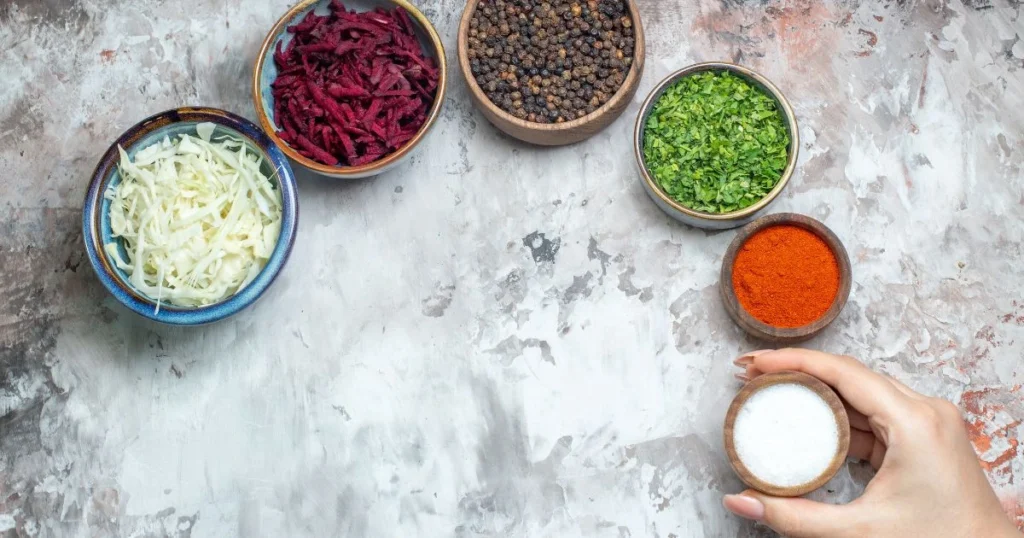
Cooking with Italian Seasoning
Everyday Meal Ideas
- Sprinkle on roasted vegetables.
- Stir into soups or stews.
- Use as a rub for chicken, beef, or fish.
- Blend with olive oil for bread dipping.
Recipe: Italian Herb Roasted Chicken
| Ingredient | Quantity | Notes |
|---|---|---|
| Whole chicken | 1 (3 lbs) | Cleaned and dried |
| Olive oil | 3 tbsp | Helps crisp the skin |
| Italian seasoning | 2 tbsp | Flavor-packed blend |
| Garlic cloves | 4 | Minced |
| Lemon juice | 2 tbsp | Adds brightness |
| Salt & pepper | To taste | Adjust as needed |
Instructions:
- Preheat oven to 375°F (190°C).
- Rub chicken with olive oil, garlic, lemon, salt, pepper, and seasoning.
- Roast for 1 hour 20 minutes or until juices run clear.
- Rest 10 minutes before carving.
Tips for Using and Storing Italian Seasoning
- Store in an airtight jar, away from sunlight.
- Best used within 6–12 months.
- Crush herbs gently before use to release oils.
- Mix with olive oil and vinegar for an instant dressing.
Frequently Asked Questions (FAQ)
What are the main Italian seasoning ingredients?
The core herbs are basil, oregano, rosemary, thyme, marjoram, and sage.
Is Italian seasoning healthy?
Yes. It contains antioxidants, vitamins, and compounds that support digestion, immunity, and heart health.
Can you make Italian seasoning at home?
Absolutely. With common dried herbs, you can create your own mix in minutes.
What dishes go best with Italian seasoning?
It works well with pasta, pizza, roasted vegetables, meats, soups, and even bread.
How long does homemade Italian seasoning last?
When stored properly, it can last up to a year while retaining flavor.
Conclusion: Why Italian Seasoning Deserves a Spot in Your Kitchen
When you understand what goes into Italian seasoning, you see it as more than a convenience spice blend. Each herb brings unique flavor, history, and health benefits. By mixing them together, you create a seasoning that not only enhances your meals but also nourishes your body.
The next time you cook, don’t just grab salt and pepper—reach for Italian seasoning. Or better yet, make your own custom blend. It’s an effortless way to elevate your dishes, enjoy authentic Italian flavors, and support your health at the same time.
Call-to-Action:
Start small tonight. Take that jar of Italian seasoning (or your homemade version), sprinkle it over your next meal, and taste the difference. Once you do, you’ll wonder how you ever cooked without it.



